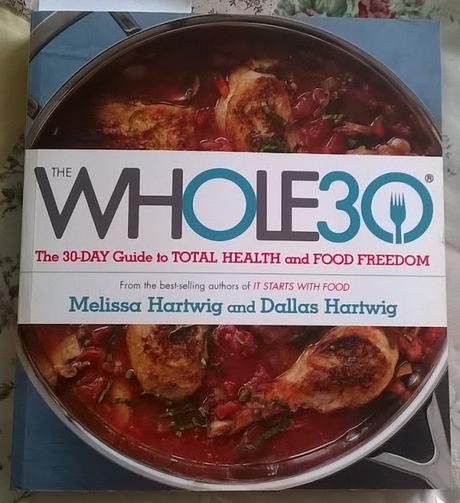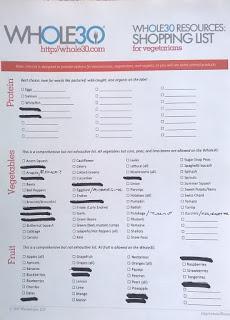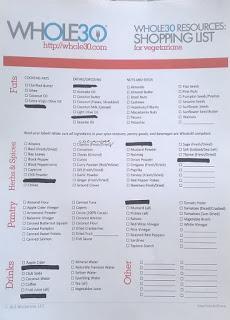
I'm currently reading this book.
I've had it on the kitchen shelf for a while but decided to save reading it until after our usual, although slighter than previous years, Christmas excess and my wander back into eating foods I should know by now are not good for me. I have noticed that once you fall back into old eating habits it is a hard slippery climb back to get yourself eating properly and healthily again, and of course we have had to eat up all the bad things that were lurking in the cupboards ... haven't we!! ;-)
I was just wondering if anyone out there has read this book and done the 30 day programme and if it worked for them?

I am thinking of doing it myself as a kick start to getting me back to good habits, healthier eating, and even more importantly to me feeling good. It seems very Harcombe like and that suits me. So I have put a big ring around the 1st March on the calendar as it seemed a really good time to start. The first of March is on a Tuesday so the Monday would be my day zero, a chance to menu plan, examine all the foods we have in store that would be suitable, and thank goodness, there is a lot in the freezer and cupboards that will be, but possibly more importantly this week I am going to see what we have in that might tempt me back to the 'dark side' ... I don't think there's too much. We don't buy processed junk foods, sugary drinks or cakes, but I do know there are a few things that I like that are really classed as processed food so it would make sense to add them to this weeks menu plan and thereby remove them from temptation for the coming month.

I have just printed out and gone through the pescetarian/vegetarian/vegan shopping list and there is such an abundance of food that I can eat and that we do already have in store that it should be no problem to do this even with our current 'Year of Without'. The things I have crossed out with my marker pen were just things that I don't like or can't eat due to allergies.
If you would like more information on The Whole30 click HERE. I haven't read much of this yet but it looks interesting.
Sue xx

posted on 23 February at 20:19
I've done a Whole30 in the past and soon after became curious about the scientific research provided in the book, It Starts With Food (although the book you have is the cliffnotes version of It Starts With Food). As I am a student studying nutritional science and currently work as a researcher, I decided to review the citations the authors provide for each chapter of the book and see if the science matched up with the claims being made.
Unfortunately, I found that a majority of the cited claims were very misleading or completely false. This book can substantially mislead people about what a proper healthy diet looks like due to this inaccurate information. You can read some of my chapter reviews of the book here: http://nutritionasiknowit.com/whole30/
The Whole30 approach to elimination and reintroduction of foods is also not appropriately designed in a way that would allow accurate and reliable identification of food sensitivities. For a more evidence-based approach to an elimination diet, you might want to try the one set out by Precision Nutrition found here: http://www.precisionnutrition.com/elimination-diet-infographic
Elimination diets take a lot of time and commitment and shouldn't be undertaken unnecessarily. Here are a few additional tips if you do decide to undertake one:
1 - You don't have to eliminate all these foods. If there's one you think is causing you issues focus on that.
2 - Beware the false positive! When you abstain from eating certain foods for a time, you lose certain enzymes and gut bacteria that aid in the digestion of these foods. Upon reintroduction, you may experience gastrointestinal "symptoms" that are really just due to the lack of said enzyme/bacteria. These will build back up over time as you continue to consume the food. Don't needlessly eliminate an entire food group without THOROUGHLY testing yourself a number different times.